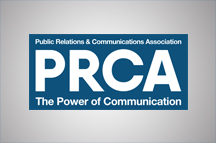The Public Relations and Communications Association (PRCA) has announced a new review into the political polling and predictions industry and will be inviting major players to share their insights.
 Aimed at addressing trust and confidence in political predictions following the UK General Election 2015 result, the UK Referendum result, and the US Presidential Election result, the PRCA Review of Political Predictions will be led by Andy Sawford MPRCA, Managing Partner and Co-owner at Connect Communications and former shadow minister. Sawford outlines his plans online here.
Aimed at addressing trust and confidence in political predictions following the UK General Election 2015 result, the UK Referendum result, and the US Presidential Election result, the PRCA Review of Political Predictions will be led by Andy Sawford MPRCA, Managing Partner and Co-owner at Connect Communications and former shadow minister. Sawford outlines his plans online here.
Targeting the perceived problem holistically, the Review will be inviting views from organisations across our membership, wider industry, polling industry, and the broader political landscape that have been vocal about the issue.
As well as publishing and challenging a range of views, the enquiry will also include evidence sessions, roundtables, and expert briefings. This will culminate in a half-day conference in 2017.
 Francis Ingham MPRCA, Director General of the PRCA, said: “Brexit and the election results both provide a strong impetus – and countless opportunities – for the public affairs and lobbying industry.
Francis Ingham MPRCA, Director General of the PRCA, said: “Brexit and the election results both provide a strong impetus – and countless opportunities – for the public affairs and lobbying industry.
“With this being said, it is equally important to pro-actively address a perceived problem among those who work in politics: so many called both results wrong.
“This enquiry has two distinct aims: to look into how this happened and look into how we can prevent it happening again. The polling industry has rightly worked since the General Election to look at how and most predictions were wrong: that is why it is so important to ensure they are involved in this and ensure that our industry does the same."
Sawford added: "Over the coming months I will be leading the PRCA Review of Political Predictions. We will ask tough questions and face difficult truths, as we explore why the 'experts' keep getting it wrong. We will invite views and perspectives from both those who are willing to hold their hands up and say they got it wrong, and those more marginal voices who went against the grain and called it correctly. We will explore the reasons behind the gap between what most experts thought would happen and what actually happened.
"Our aim is to learn for the future and to restore confidence in the art and science of predicting political trends and outcomes. We expect to gain some broader insights to, that go beyond the specifics of recent elections, to the wider question of how we can better understand different views and currents in public opinion."












